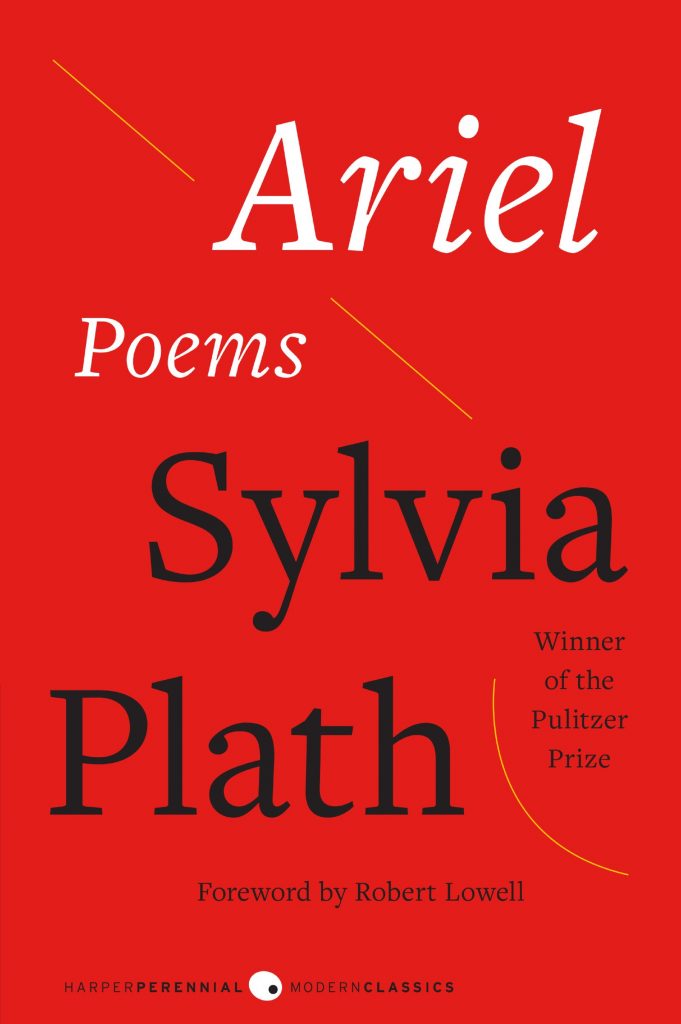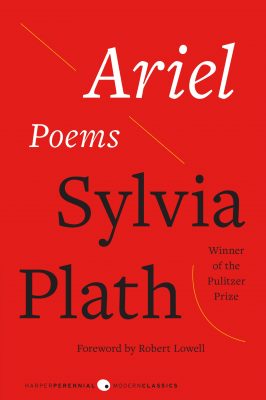
In 1965, two years after Sylvia Plath’s death, Ted Hughes published Ariel. This was her second collection of poetry—her first was The Colossus (1960)—but it’s the collection that elevated her reputation and established her as a literary genius. In organizing Ariel for publication, Hughes dropped twelve poems that Plath intended to include, and he replaced them with twelve later poems. But two poems that existed in both Plath’s vision and Hughes reworking are “Daddy” and “Medusa.” Since “Daddy” concerns her relationship and “Medusa” concerns her relationship with her mother, it feels appropriate to examine these poems together.
Before I started exploring Sylvia Plath’s works, I had read only one poem by her. That poem was “Daddy.” I had read it only once, as an assignment for a class, and I allowed that reading to forge my opinion of Plath and her life. Though I loved the poem, I dismissed the poet as a woman suffering “daddy’s issues.” I don’t think I’ve heard of her before that assignment; for a decade after it, I gave her little thought. But soon I found more references about her popping up in popular culture and literary allusions. As I expanded my study of literature, I learned that she has a more important role in that discipline than my dismissive impression suggested. When I reexamined “Daddy”—her most famous poem—I found an eerie beauty in its lines.
Daddy, I have had to kill you.
You died before I had time—
Marble-heavy, a bag full of God,
Ghastly statue with one gray toe
Big as a Fresco seal
It reminded me of Theodore Roethke’s “My Papa’s Waltz”—another poem about the poet’s relationship with his father. “My Papa’s Waltz” is a shorter poem, but professors often assigned it to me in college. It seemed every class about poetry or American literature included it in its coursework. In one discussion about it, the professor said, “Poetry is about mixed emotions.” I retain that one line as the most important lesson about poetry I learned in college; it is the filter through which I examine all poems. There are mixed emotions in Roethke’s poem—a contest between fear and excitement.
And there are mixed emotions in Plath’s “Daddy,” but it seems a more complex and layered contest. There is the obvious contrast between love and hate, but there is a deeper blend between memory and longing. It is this blend that provides “Daddy” with its movement. Here Plath struggles to reconcile her confused feelings about her father, his early death, and her unreconciled grief over him. En route, she employs images from the Nazi death camps, her failed suicide attempt, her unhappy marriage, and even vampire lore.
I was ten when they buried you.
At twenty I tried to die
And get back, back, back to you.
I thought even the bones would do.
In Greek mythology, Medusa is a Gorgon, a winged woman with poisonous snakes instead of hair. When men looked upon her face, they turned to stone. We can assume the same fate applies to women who see her. It’s a frightening image for a daughter to apply to her mother, yet Plath felt so strongly about the image that she named the poem about her mother “Medusa.”
As a child, we learn to love our parents, but as we grow older, we learn new aspects about them that cause resentment and loathing. For most of us, that loathing never displaces the love, but it adds an acidity flavor to it like a lemon wedge dropped in iced tea. It gives rise to those mixed feelings we saw in “Daddy,” but in “Medusa,” those mixed feelings are all negative. Fear, bitterness, and hatred pour from the lines.
Did I escape, I wonder?
My mind winds to you
Old barnacled umbilicus, Atlantic cable,
Keeping itself, it seems, in a state of miraculous repair.
If “Daddy” is reconciling her emotions for her father, “Medusa” is an outburst of rage. We have all held our tongues, buried that emotion that required release, struggled with the words to express it. Sometimes for days, sometimes for months, sometimes for years. Imagine holding it for thirty years and then releasing it. The words shoot from the mouth like bullets from a machine gun. Do they make sense? Does it matter? It’s the rage that matters. It’s finally giving voice to those suppressed emotions. All ending in that cold, eerie final line…
There is nothing between us.
Sylvia Plath did have daddy issues; she also had mommy issues. Our first relationships are with our parents. That relationship with the parent begins as a dependent relationship—we love them because we have no
